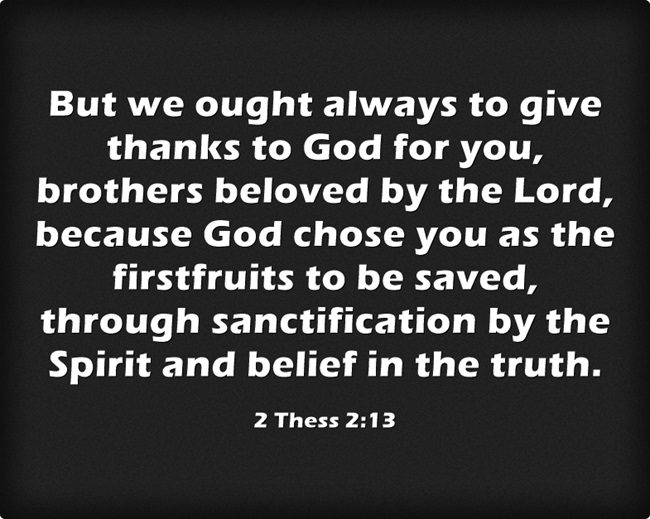Why did Paul write the Book of 2nd Thessalonians? What’s in it for us today?
The Author
Obviously Paul wrote the Book of 2nd Thessalonians, probably near AD 52 and almost immediately after 1st Thessalonians because the church had more questions about Jesus’ second coming and those already departed. This book happens to be one of Paul’s shortest books but it’s not lacking for doctrinal issues. As was his custom, Paul identifies himself in the very first line by writing “Paul, Silvanus, and Timothy, To the church of the Thessalonians in God our Father and the Lord Jesus Christ” (1:1) so we know who wrote it, the intended audience (Thessalonica church) but exactly why he wrote it, we will see in the next paragraph.
The Purpose
The church at Thessalonica, even after Paul’s first letter to them (1st Thess), they still had questions about the second coming of Jesus Christ and about those who had passes away already and those still living. They had a huge lack of understanding about the return of Christ for His church and so 2nd Thessalonians is a support letter or a follow up to 1st Thessalonians and in referencing 1st Thessalonians, he almost saying that they should be read together and not separately because it will give them a broader picture. Some had expected Jesus to return very soon and so they had quit their jobs and Paul wrote “we hear that some among you walk in idleness, not busy at work, but busybodies” (1st Thess 3:11) so “we command and encourage in the Lord Jesus Christ to do their work quietly and to earn their own living” (2nd Thess 3:12) because “If anyone is not willing to work, let him not eat” (2nd Thess 3:10b). In other words, keep working and witnessing and don’t be concerned about the exact time of Jesus’ return.
The Focal Point
We know that Paul addressed the resurrection, the second coming of Christ, and the fate of believers who have already passed away in his first letter to the Thessalonians but that also seems to be the reason for writing 2nd Thessalonians. As I wrote earlier, 2nd Thessalonians appears to be a follow up to 1st Thessalonians so that the church can see the broadest eschatological perspective of what must happen just before Christ returns for his church. Eschatology is the study of biblical teachings about the approaching end-times and deals with the return of Jesus Christ and those things written that are to follow His return. He even refers to the Book of Daniel by writing of the end times, “Let no one deceive you in any way. For that day will not come, unless the rebellion comes first, and the man of lawlessness is revealed, the son of destruction, who opposes and exalts himself against every so-called god or object of worship, so that he takes his seat in the temple of God, proclaiming himself to be God” (2nd Thess 2:3-4). Apparently when Paul wrote this, “the mystery of lawlessness is already at work. Only he who now restrains it will do so until he is out of the way” (2nd Thess 2:7) and then “the lawless one will be revealed, whom the Lord Jesus will kill with the breath of his mouth and bring to nothing by the appearance of his coming” (2nd Thess 2:8).
Our Calling
We are called to live lives of holiness before God. Naturally we cannot ever achieve holiness but we strive to live an obedient life before God and esteeming Jesus as most precious to us. If someone came up to a friend of mine and ask him, “What is the most important thing in Jack’s life,” what would he say? Would he say that Jesus is the most precious thing to me? If we endure great persecutions and afflictions from those who hate us and really, hate God (2nd Thess 1:4) you and I will be “considered worthy of the kingdom of God, for which [we] are also suffering” (1st Thess 1:5).
Conclusion
This is one of Paul’s shortest letters and one of the smallest books in the Bible but the Word of God doesn’t depend on the size but upon the power in those words and the Word of God has God’s own power behind it (Isaiah 55;11). I can ask someone to consider repenting and turning to Christ but “it depends not on human will or exertion, but on God, who has mercy” (Rom 9:16). We are not responsible for saving anyone; it is their response to His ability, although it is our responsibility to tell them. God have mercy on your soul when you die (Heb 9:27) or when Christ returns (Rev 20:12-15) if you reject this message, your reject your only source of hope (Acts 4:12).
Article by Jack Wellman
Jack Wellman is Pastor of the Mulvane Brethren Church in Mulvane Kansas. Jack is also the Senior Writer at What Christians Want To Know whose mission is to equip, encourage, and energize Christians and to address questions about the believer’s daily walk with God and the Bible. You can follow Jack on Google Plus or check out his book Teaching Children the Gospel available on Amazon.












